On Tuesday morning I rose early and drove through a heavy sea-mist to a town about 20 minutes from my home. I shrugged off my clothes and headed for the beach. This was the culmination of a week I’d spent with the cold, inspired by
Connecting to the Cold writing prompts. I slid into the icy sea and gasped and fought the desire to run the f**k away, breathing deep and splashing about in the discomfort.Driving home, I was struck by how my swim and my resistance to the cold spoke to a piece I’d read the day before by
titled How Do Lobsters Grow. Anna writesIt is perfectly normal in writing — and life — to turn away from things that make us feel uncomfortable, yet perhaps these are the exact things we need to turn towards in order to develop as writers, and humans.
The last ten days I have not managed to write many words. Morning pages if I am lucky, and that, mostly, has been it. It was midterm last week, and with my husband away, the days were full. But somehow I still found time to listen and to read. Folding washing, raking leaves, chopping onions, lying beside my son as he fell asleep, I’ve been able to soak up other people’s words.
More and more, I notice that this reading and listening is weaving its way in and out of my days. Everything seems to cross pollinate, one thing leads to another in the most delicious of ways. Words I hear seem to speak to words I read, which call me to reach out and touch the world and to see it in a new, surprising, more intimate form.
In a week where I have faffed and flailed and foostered1, Amanda Thomson’s words in her book Belonging felt like they were written directly to me. She writes that she has
always been struck by those who’ve had a singular, successful direction or trajectory, perhaps calling. I feel now that I footered about for the first forty years of my life, couldn’t quite find my voice or a method of expression.
Her words rang so true for how I had been feeling all week. They rang true, but I also deep down knew that all those forty (four!) years of mine had not been entirely waste
And then I read Natalie Goldberg’s words in Writing Down the Bones on composting, on how our experiences need ‘the richness of sifting for a while through our consciousness and through our whole bodies.’ Of how, after much turning and churning and sifting suddenly
you are in alignment with the stars or the moment or the dining-room chandelier above your head, and your body opens and speaks.
Of how this process can take years, of how ‘the understanding also helps us to accept someone else’s success and not to be too greedy. It is simply that person’s time. Ours will come in this lifetime or the next. No matter. Continue to practice.’
I speak of this with a painter friend of mine. We decide it is a little like doing yoga. You just need to keep stepping on the mat. It is the stepping on that matters, what comes next is often not even up to you.
Which, like a bee buzzing from flower to flower, connects to what
posts on Valentines Day about writing and love:Love requires those things: choosing, paying attention, reminding yourself ‘this matters to me’ - and ignoring your ego knocking on the door of your mind while you try.
I think more of composting as I listen to Robin Wall Kimmerer read aloud her book Gathering Moss. I listen to her describe dancing bare foot on a peat bog, dancing on ancient memories, connecting to what has been preserved, mourning what has been destroyed.
Later in the day my daughter and I find a blackbird, dead, on the cedar decking by the glass of our living room door, neck broken from its collision with the glass. We gently scoop it onto a spade and bring it into the woods to bury it in the soft leaf mould of the forest floor. As my daughter places a bay leaf, a crocus head, purple rosemary flowers and tiny leaves of thyme against its black feathers I think of the description I had read earlier in the week in Robert Mcfarlane’s book Underland of an ancient burial ground in which a mother was found interred, along with her newborn son. The mother lay first, the baby boy on her chest and between them was placed the open wing of a swan. Perhaps to make the bed softer for the boy, perhaps to help them fly up and on.
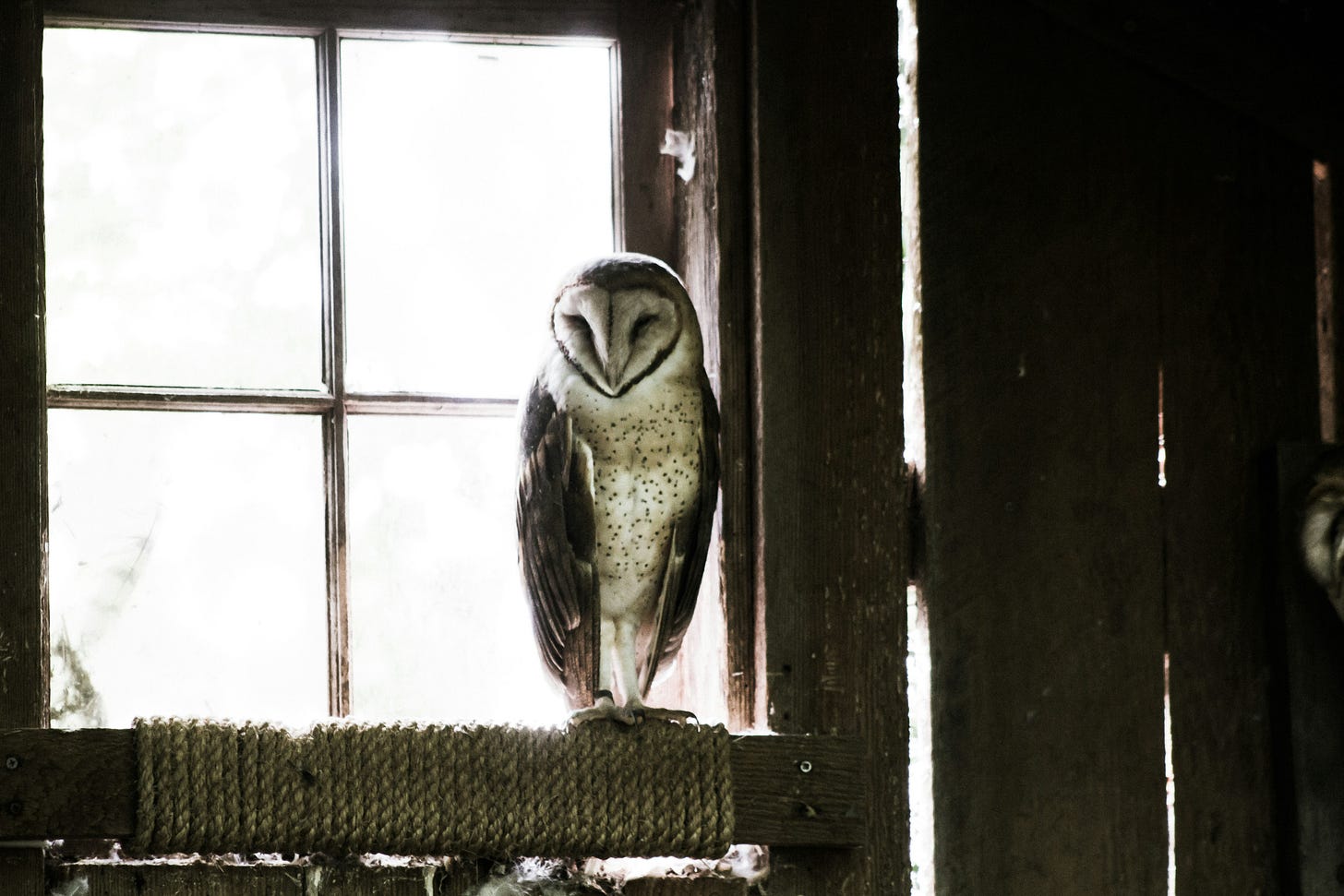
These burials and these birds mind me of a poem titled Funeral for an Owl by Jane Lovell. I think it is this poem and
’s teaching of it on her Writing Through Emergency course that has me bury the blackbird with such love.The smoke betrays you, balling out into the room
to hang like a shroud.
Stopped in the flue above the baffle, wings folded
at terrible angles, there is nothing to you
but a beautiful, plumed husk, light as a wasps’ nest,
woven from the thinnest bones.
I think of this honouring and loss too as I read an article in the Guardian on the sudden silence and emptiness of Lough Neagh in Northern Ireland. The infamous flies, which fed a multitude of creatures on and in the water, have disappeared, as have the whooper swans, which had always in living memory arrived from Iceland to overwinter. Local Tom Mc Elhone recalls:
I remember lying in bed and hearing these swans calling out to each other, up and down the lough, having this magnificent conversation at all hours of the night. That’s all gone.
Robert Mc Farlane also writes of other birds in Underland. An owl carved from the whitest of bone, sculpted from the rib of a whale washed up on a Welsh shore, was gifted to him under the condition he kept it with him always as a talisman when he travelled to the bowels of the earth, as deep as a man or woman can descend. He was gifted the white whale-bone owl to help him see in the dark.
Which is, I see now, why the white owl stood in the centre of a small country road my husband drove down on a dark night perhaps three years ago. It was a white owl that did not fly away as he approached. Who looked him straight in the eye for some time before slowly turning and then flying away across the path of his car.
I have collected owls ever since - an owl looks down from an artwork by a Berlin artist over our bed, a wooden owl carved from oak sits on the windowsill in the sitting room, a red owl sits on the dresser, a third bought only weeks ago from a cheap corner shop in Lanzarote, it’s feathers painted in bright flecks against the soft bolsa wood, sits over a picture frame opposite my bed. I think I too would like to be guided through the dark, I would like to gain some night time vision as I descend.
This was the gift of the candle my children and I poured into the earth in the woods during midterm, inspired by reading this post. The candle lit up the forest. But it also invited us stand out there in the black, beneath the star-pocked sky and feel closer to the world.
A few days later two of my children drew this together:
my daughter drew the world above ground,
my son drew the roots below.
Glowing to the left of the tree’s trunk is the candle we lit in the earth.
in Ireland we say fooster, Thomson, who is Scottish, writes footered, which I take to mean the same thing.



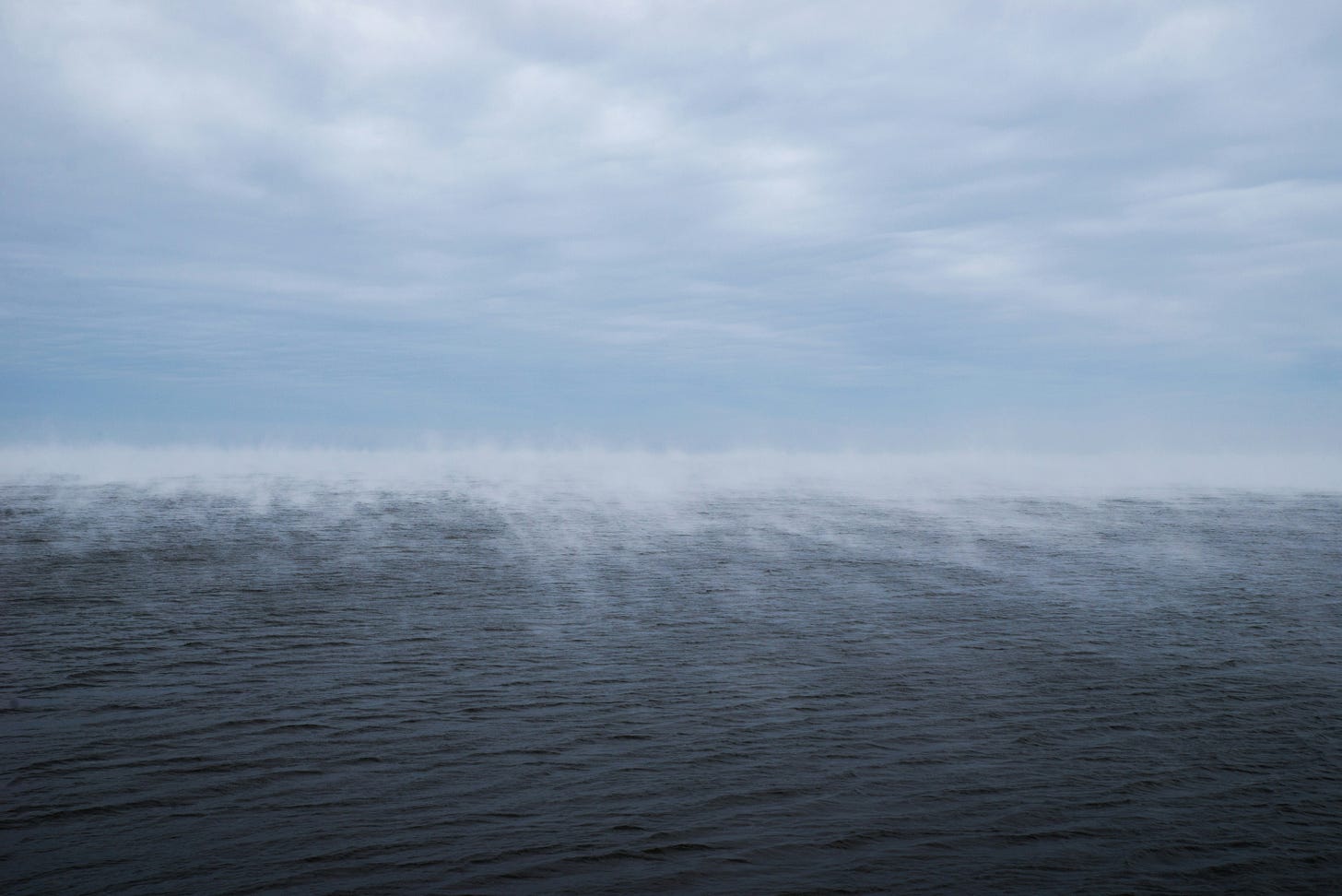
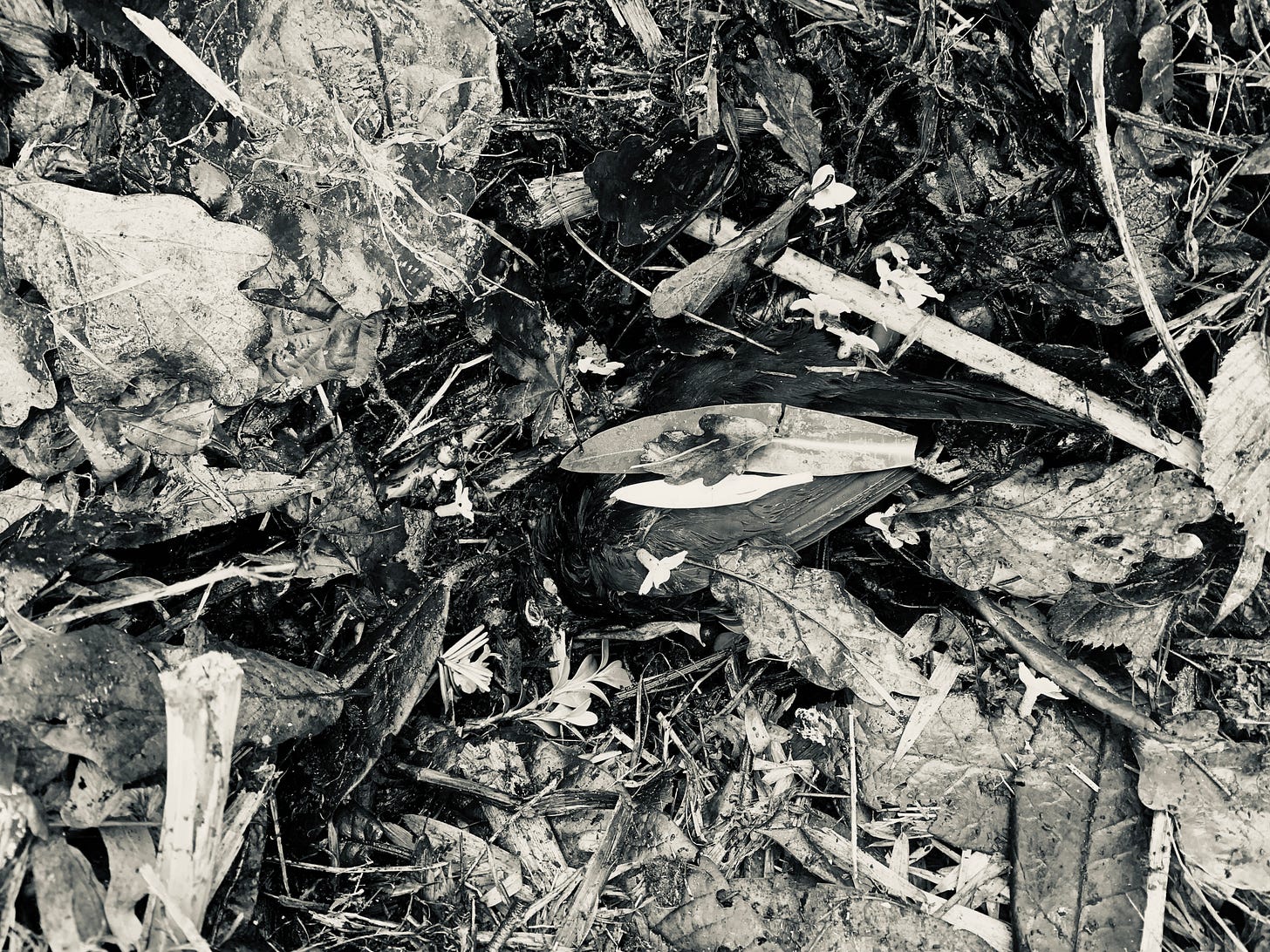
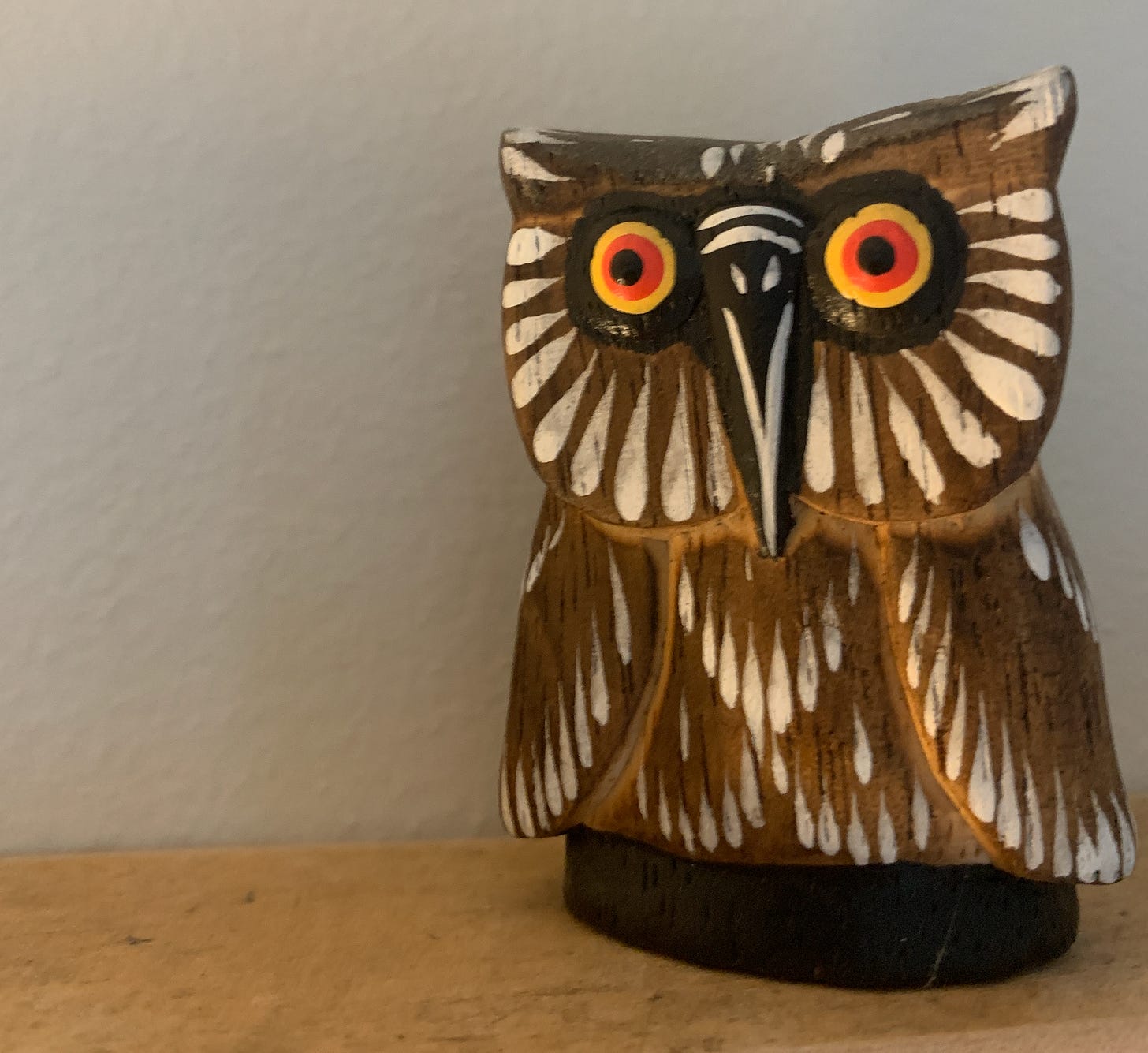
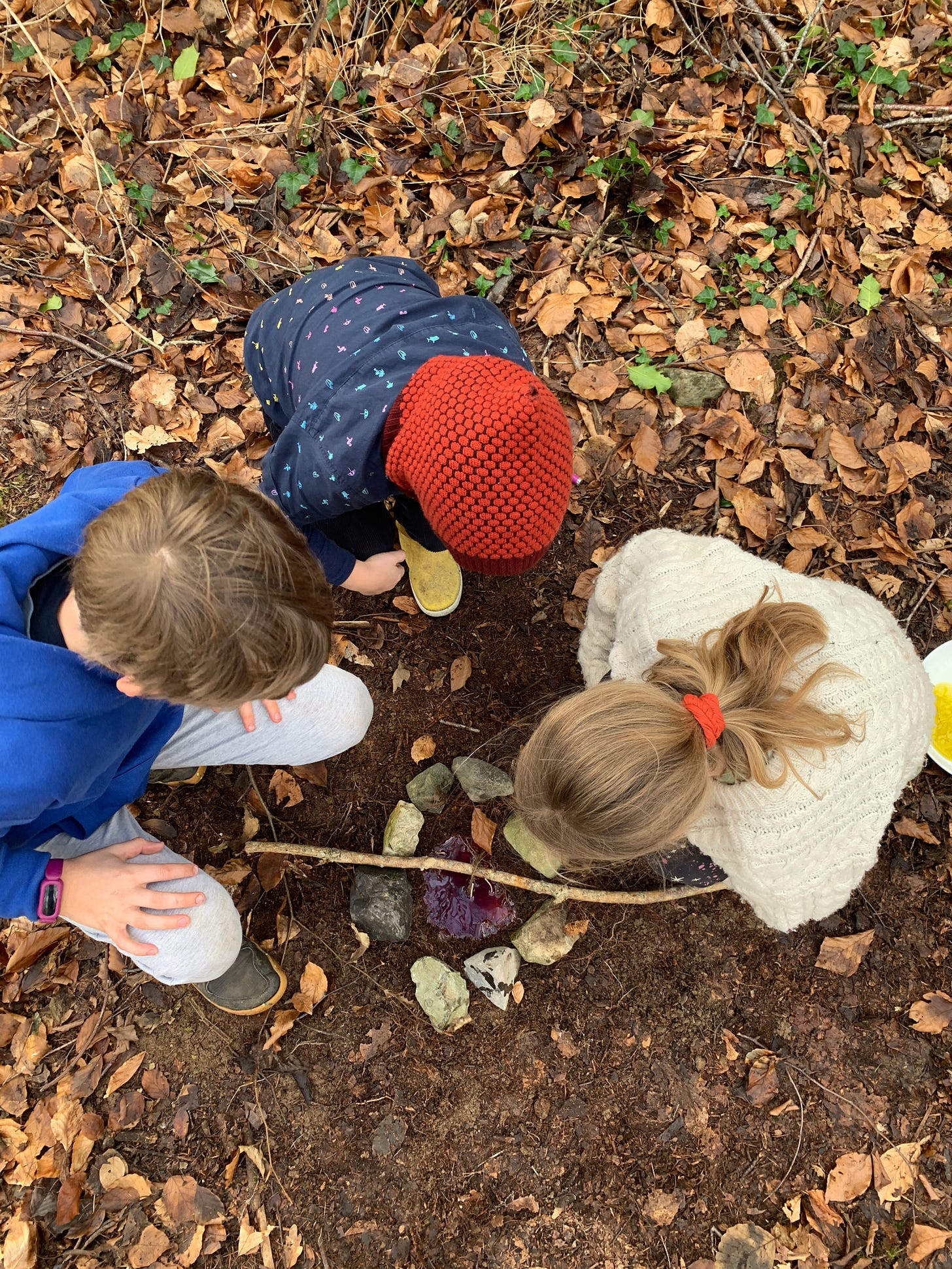
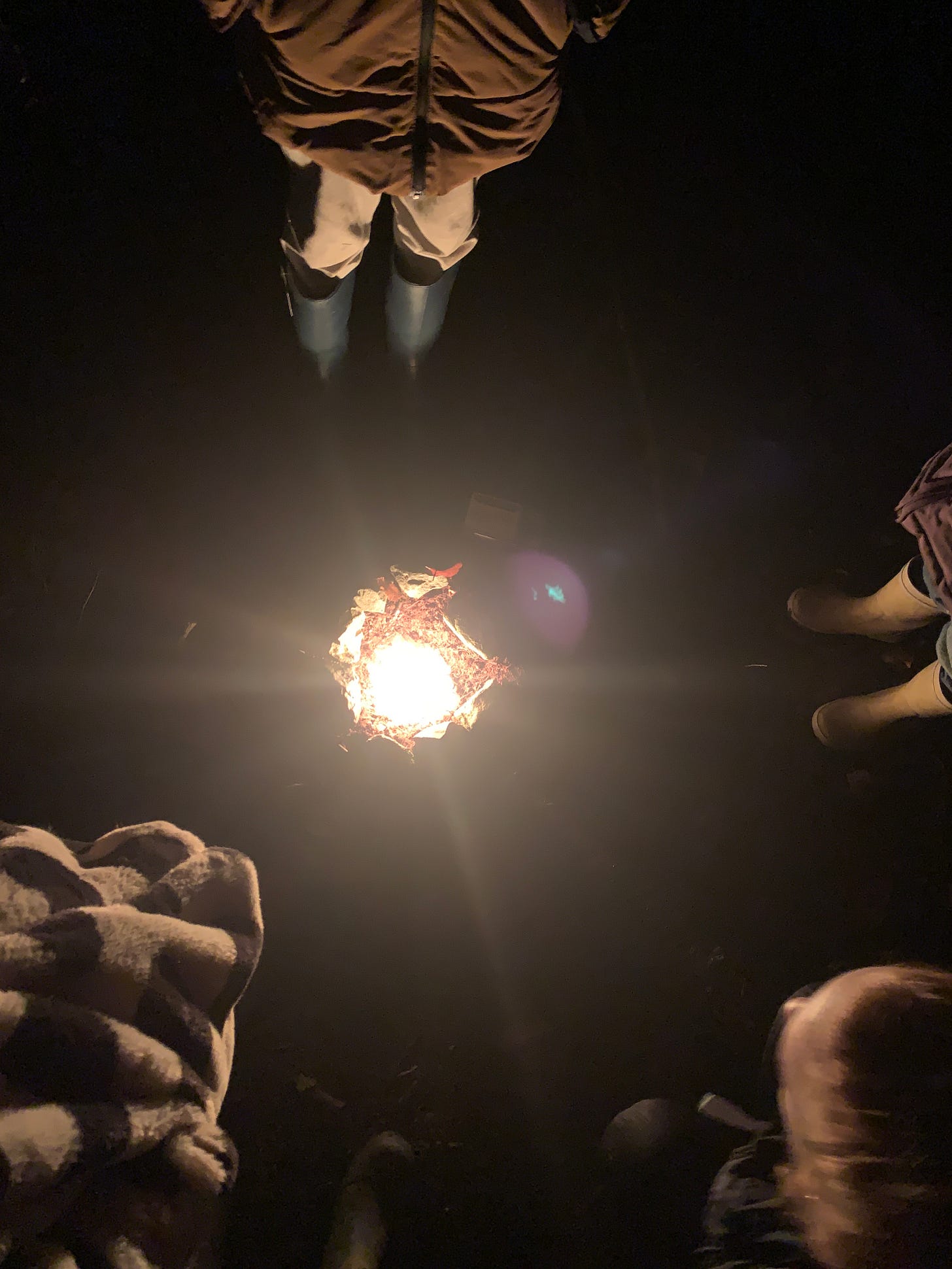
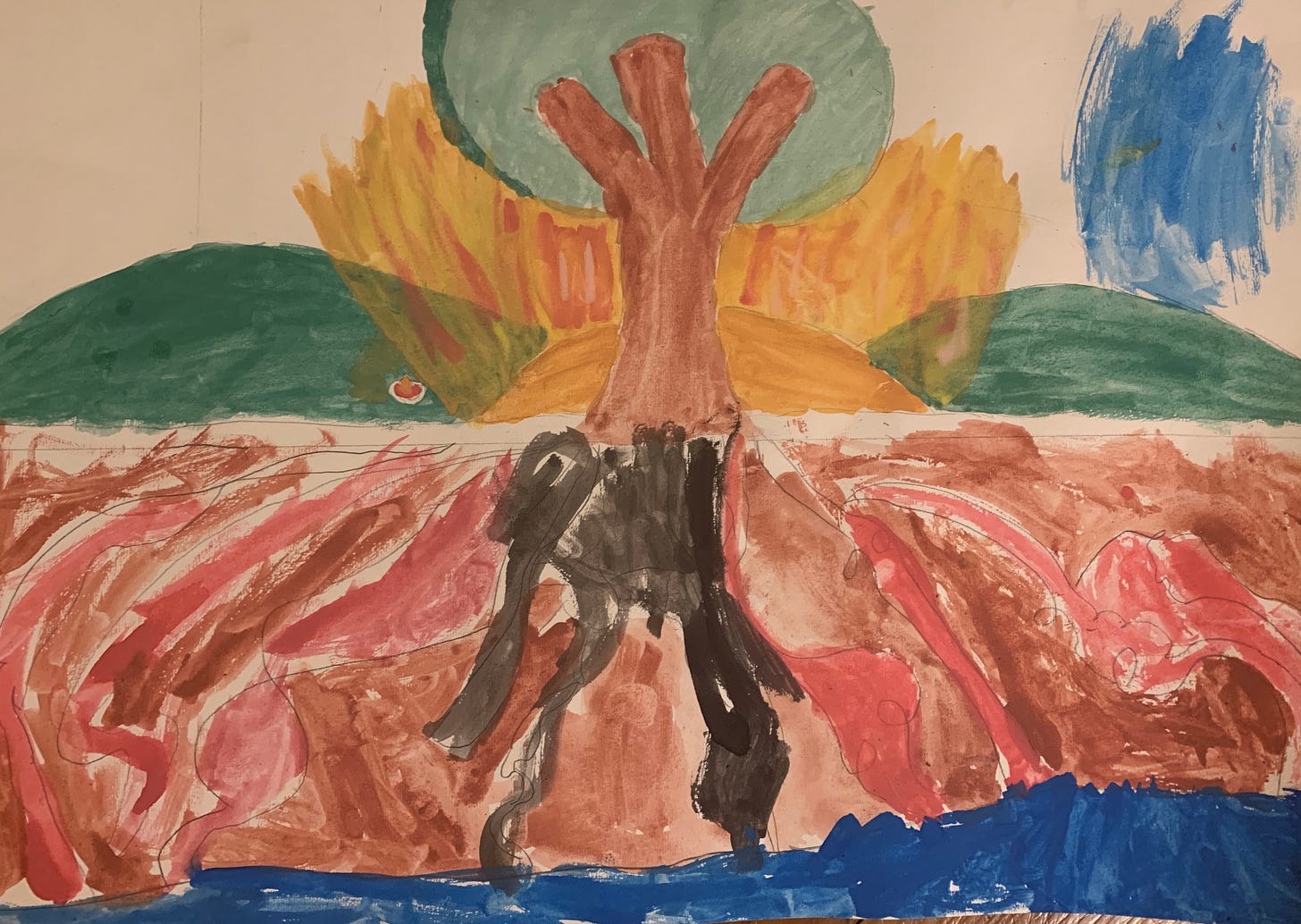
My journals are a tangle of words, ideas and quotations I gleam from all places and weave with my own words, and so this piece really resonates. Also love the idea of an earth candle 🌎 🕯️
Lovely words Layla… yes to the composting of our experiences and working to our own timing. Showing up to the yoga mat and to the page( I’m a yoga teacher and writer) are all we can do, listening in to nature and our own bodies and energies. Our calling emerging in many forms, as mothers, writers as we move through the seasons of our life. ❤️